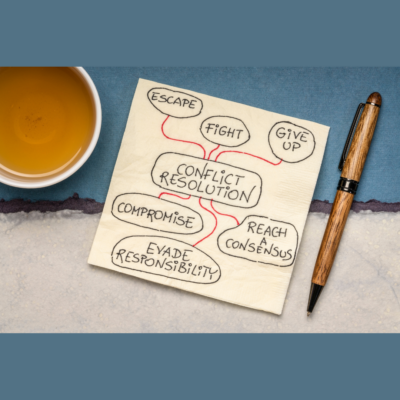 This is the third blog based on questions I have received after a day of training on Navigating Emotional Realities with Adult workshops. There have been many interesting questions submitted by participants.
This is the third blog based on questions I have received after a day of training on Navigating Emotional Realities with Adult workshops. There have been many interesting questions submitted by participants.
If people have different conflict styles, how can they successfully engage in conflict with each other? (For example if one person defaults to “shrinking” and another defaults to “big anger,” how can they work it out so it isn’t a huge problem?)
This is a good question that will best be dealt with in a staff conversation. But the staff has to be at a place where these kinds of conversations can take place! If a staff can spend even a little time recognizing each other’s approach to conflict, it can help mediate the frustration felt when styles don’t match, such as:
- Why is she so loud and aggressive?!
- Why won’t she talk and tell me what she really thinks?
Failing that, I think that, as individuals, we can begin to look at others we work with and develop approaches that meet their style as best as we perceive them to be. This will take a bit of thought and even work, as well as a willingness to change our approach, depending on the person we are talking to. But it can be done. Others will appreciate it, and our own levels of frustration will be reduced.
How do we stop the Karpman triangle in the workplace?
How can we hold staff accountable for their actions when they are being driven by their past experiences?
First question: One thing is to make the Karpman triangle known and talked about as a reference for everyone—not to blame and shame but to recognize it and reference it. Having staff meeting reminders even for just a minute or two can help. “Here’s this month’s hint for staying out of the triangle!” Getting as many people as possible to buy in to the concept and then being willing to step back without blame when the triangle gets going (and it will!) will be helpful.
Second question: In the world of trauma, the question is not “What’s wrong with you?” it’s “What happened to you?” This is right and good for people working through their trauma in therapy or with family. However, on the job where there is work to be done (this is a bit rude), nobody cares what happened to you. It really is, “What’s wrong with you?” Another way to think about this is that if you are a rude, disrespectful, mean person, it doesn’t really matter how you got that way; you are going to be difficult to work with. So, in the workplace, being sensitive to people’s past stories does not mean that we have to deal with all of the negative effects of those stories, nor should expectations for healthy relationships be lowered. If an employee is consistently having challenges related to their past and the effects of that past on their present behavior, a supportive conversation with that employee, hopefully in the context of a relationship of mutual respect with a supervisor or even a coworker, will probably be required.
The workshop, Navigating Emotional Realities with Adults, will be offered live online on November 29 with Jim Ott. Participants will learn how to identify and explain the neuroscience of emotional development, learn about tools that help create a safer work environment, understand the story they carry within themselves, recognize how adult development impacts the workplace, and learn strategies to motivate behaviors needed in the workplace. Register today.








